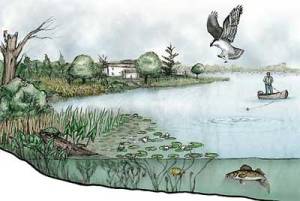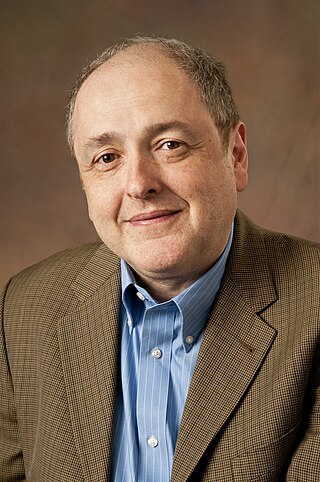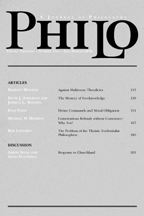Ethical naturalism is the meta-ethical view which claims that:
- Ethical sentences express propositions.
- Some such propositions are true.
- Those propositions are made true by objective features of the world.
- These moral features of the world are reducible to some set of non-moral features.
Philosophy for Children, sometimes abbreviated to P4C, is a movement that aims to teach reasoning and argumentative skills to children. There are also related methods sometimes called "Philosophy for Young People" or "Philosophy for Kids". Often the hope is that this will be a key influential move towards a more democratic form of democracy. However, there is also a long tradition within higher education of developing alternative methods for teaching philosophy both in schools and colleges.

Contemporary philosophy is the present period in the history of Western philosophy beginning at the early 20th century with the increasing professionalization of the discipline and the rise of analytic and continental philosophy.
Neurophenomenology refers to a scientific research program aimed to address the hard problem of consciousness in a pragmatic way. It combines neuroscience with phenomenology in order to study experience, mind, and consciousness with an emphasis on the embodied condition of the human mind. The field is very much linked to fields such as neuropsychology, neuroanthropology and behavioral neuroscience and the study of phenomenology in psychology.

Religious naturalism is a framework for religious orientation in which a naturalist worldview is used to respond to types of questions and aspirations that are parts of many religions. It has been described as "a perspective that finds religious meaning in the natural world."
Metaphysical naturalism is a philosophical worldview which holds that there is nothing but natural elements, principles, and relations of the kind studied by the natural sciences. Methodological naturalism is a philosophical basis for science, for which metaphysical naturalism provides only one possible ontological foundation. Broadly, the corresponding theological perspective is religious naturalism or spiritual naturalism. More specifically, metaphysical naturalism rejects the supernatural concepts and explanations that are part of many religions.

The following outline is provided as an overview of and topical guide to humanism:

Robert S. Corrington is an American philosopher and author of many books exploring human interpretation of the universe as well as biographies on C.S. Peirce and Wilhelm Reich. He is currently the Henry Anson Buttz Professor of Philosophical Theology at Drew University in Madison, New Jersey. Before that he was a professor at Pennsylvania State University. He is a Senior Fellow of the American Institute for Philosophical and Cultural Thought.
Robert L. Holmes is a Professor Emeritus of Philosophy at the University of Rochester, and an expert on issues of peace and nonviolence. Holmes specializes in ethics, and in social and political philosophy. He has written numerous articles and several books on those topics, and has been invited to address national and international conferences.

Barry Stroud was a Canadian philosopher and professor at the University of California, Berkeley. Known especially for his work on philosophical skepticism, he wrote about David Hume, Ludwig Wittgenstein, the metaphysics of color, and many other topics.

Arran Emrys Gare is an Australian philosopher known mainly for his work in environmental philosophy, philosophy of science, philosophy of culture and the metaphysics of process philosophy. He currently holds the position of Associate Professor in the Faculty of Life and Social Sciences at Swinburne University of Technology in Melbourne, Australia.

Donald Allen Crosby is an American theologian who is professor emeritus of philosophy at Colorado State University, since January 2000. Crosby's interests focus on metaphysics, American pragmatism, philosophy of nature, existentialism, and philosophy of religion. He is a member of the Highlands Institute of American Religious and Philosophical Thought and has been a leader in the discussions on Religious Naturalism.
Lawrence Shapiro is a professor in the Department of Philosophy at the University of Wisconsin–Madison in the United States. His research focuses in the philosophy of psychology. He also works in both the philosophy of mind, and philosophy of biology.
Robert F. Almeder is Professor Emeritus of Philosophy at Georgia State University. He is known in particular for his work on the philosophy of science, and has also written on the philosophy of mind, epistemology and ethics. He is the author of 24 books, including The Philosophy of Charles S. Peirce (1980), Death and Personal Survival (1992), Harmless Naturalism: The Limits of Science and the Nature of Philosophy (1998), Human Happiness and Morality (2000), and Truth and Skepticism (2010).

Brian Leiter is an American philosopher and legal scholar who is Karl N. Llewellyn Professor of Jurisprudence at the University of Chicago Law School and founder and Director of Chicago's Center for Law, Philosophy & Human Values. A review in Notre Dame Philosophical Reviews described Leiter as "one of the most influential legal philosophers of our time", while a review in The Journal of Nietzsche Studies described Leiter's book Nietzsche on Morality (2002) as "arguably the most important book on Nietzsche's philosophy in the past twenty years."

Philosophical Inquiry is a peer-reviewed academic journal that publishes articles, reviews, and critical notes in all areas of philosophy. The journal aims to facilitate international communication of philosophical thought, and it does this by publishing submissions in English, German, or French from authors in several countries. Notable contributors include Gerard Casey, Theodoros Christidis, Alexander Nehamas, Vasiliki Karavakou, Fred Miller, Ron Polansky, Michael Polemis, and Nicholas Rescher. The journal is indexed in the International Philosophical Bibliography, The Philosopher's Index, and PhilPapers, and it has a Level 1 classification from the Publication Forum of the Federation of Finnish Learned Societies. Philosophical Inquiry was established in 1978 by Prof. Dimitri Z. Andriopoulos and was published for many years in cooperation with the Aristotle University of Thessaloniki. This journal is now published by the Philosophy Documentation Center.

The Structure of Science: Problems in the Logic of Scientific Explanation is a 1961 book about the philosophy of science by the philosopher Ernest Nagel, in which the author discusses the nature of scientific inquiry with reference to both natural science and social science. Nagel explores the role of reduction in scientific theories and the relationship of wholes to their parts, and also evaluates the views of philosophers such as Isaiah Berlin.
Thelma Zeno Lavine (1915–2011), was an American philosopher, professor, and writer, specializing mainly in the areas of 19th and 20th century, especially the writing of John Dewey. She taught courses that highlighted the correlation between philosophy and other topics such as economics, history, literature, and contemporary American culture

Working from Within: The Nature and Development of Quine's Naturalism is a 2018 book by Dutch philosopher and historian of analytic philosophy Sander Verhaegh. Released at a time in which there was increasing work done on Willard Van Orman Quine in the history of analytic philosophy, the book was the first to provide a full account of the historical development of his naturalism. It was also the first book to use the extensive archive materials on Quine at Harvard University's Houghton Library.











